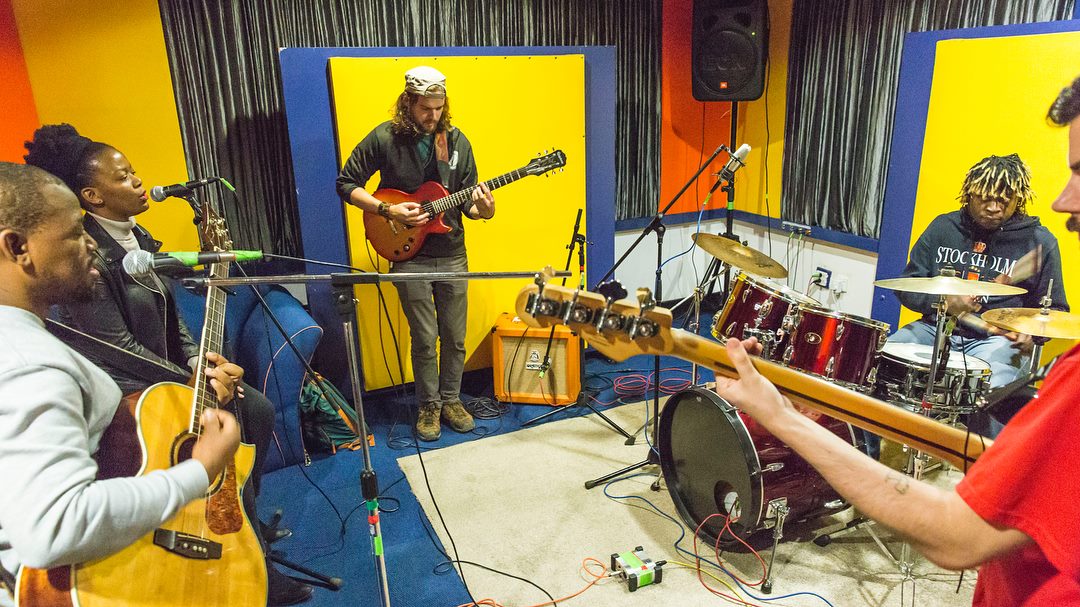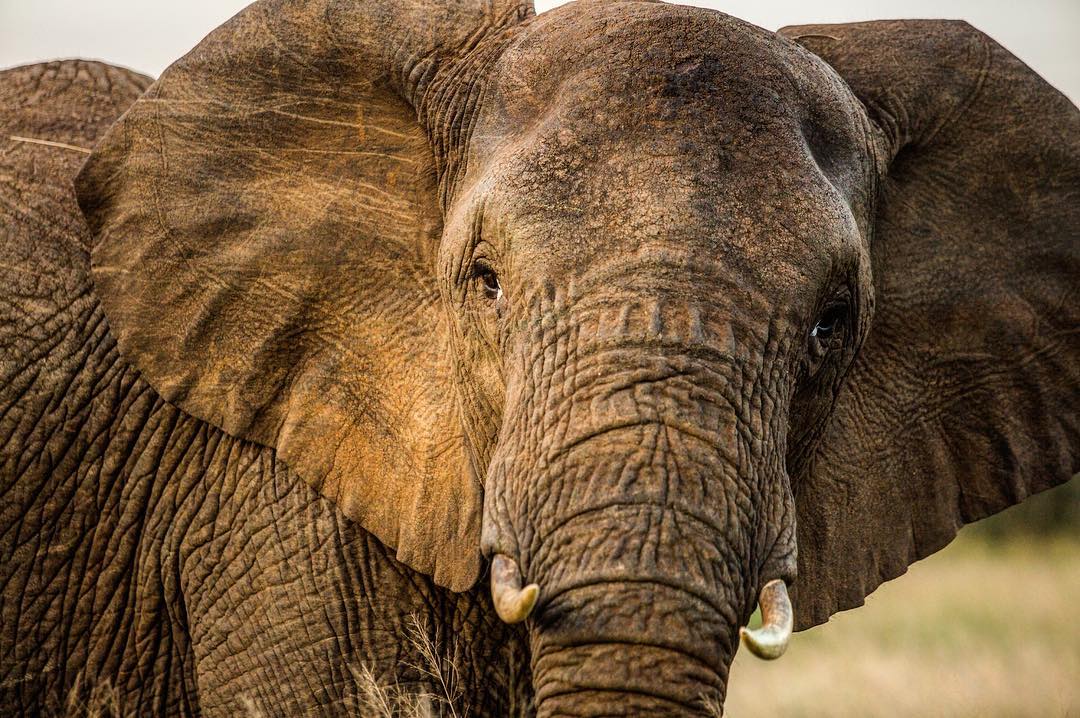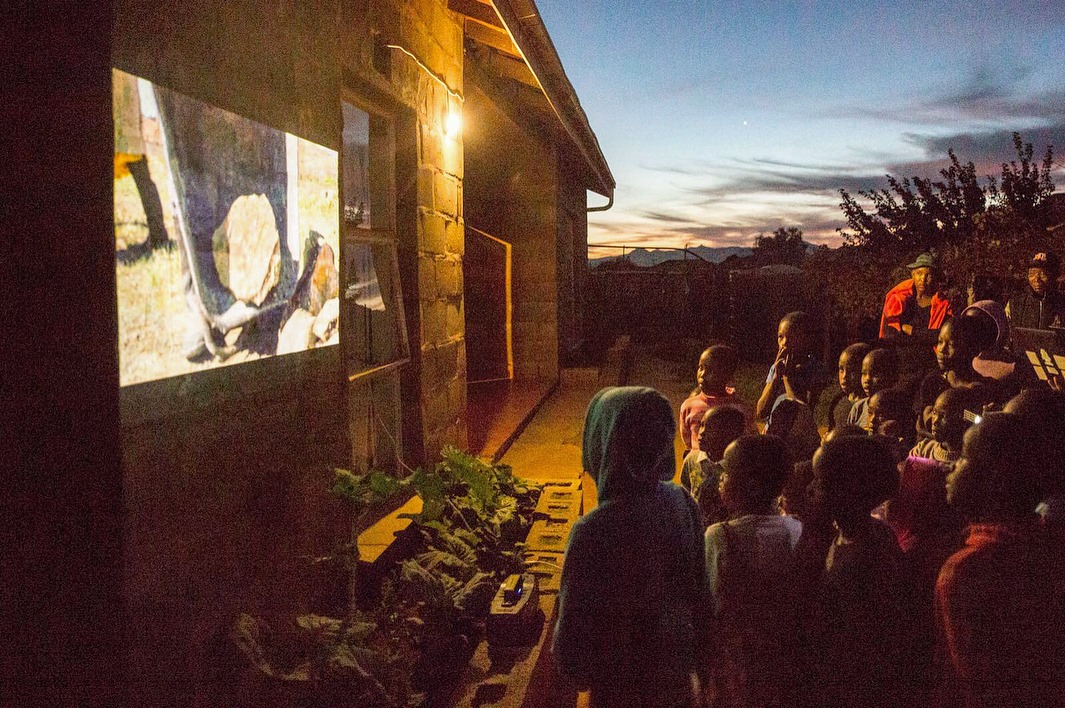CM Highlights Transboundary Water Issues in the Okavango
Following a thriving month in Pretoria, South Africa, Conservation Music (CM) headed to Botswana to combat transboundary water issues in the Okavango Delta for Expedition #K2K. We gathered artists from Gaborone and then headed to Maun, where we set off in mekoro (traditional canoes) for a four day wilderness expedition. This deep immersion into the local environment and culture made for a great month of eco-production and education. Take a look at Episode 9 of CM’s Webseries: On The Beating Path, which shares highlights from our field work, allowing you to trek with us throughout the entire experience! Check out more of CM’s stories and videos on National Geographic’s OpenExplorer platform. If you would like to contribute to Expedition #K2K, please visit our Patreon page, where you can schedule monthly donations of any amount.
Redefining Music as an Educational Tool with Local Artists
In Gaborone, we linked up with our new friend Stan who hosted us for the first week. He commonly hosts backpackers and travelers alike, yet his hospitality served great purpose for CM, as it allowed us to ground into the community and establish a core group of local musicians for the eco-song collaboration. First, we met with Tomeletso Sereetsi, a big name in the local scene who revolutionized the four-string sound by incorporating unique jazz chords. Then Tom recommended Gaone Rantlhoiwa, a local female singer with an unbelievable voice and wide array of styles. With our two main artists on board, we moved smoothly into the composition phase. The production crew sounded the melodies and rhythms, while Tom and Gaone wrote the lyrics. Inspired by the Okavango Delta’s transboundary water issues, the lyrics naturally called to bordering countries to preserve the delta’s diverse presence of life.
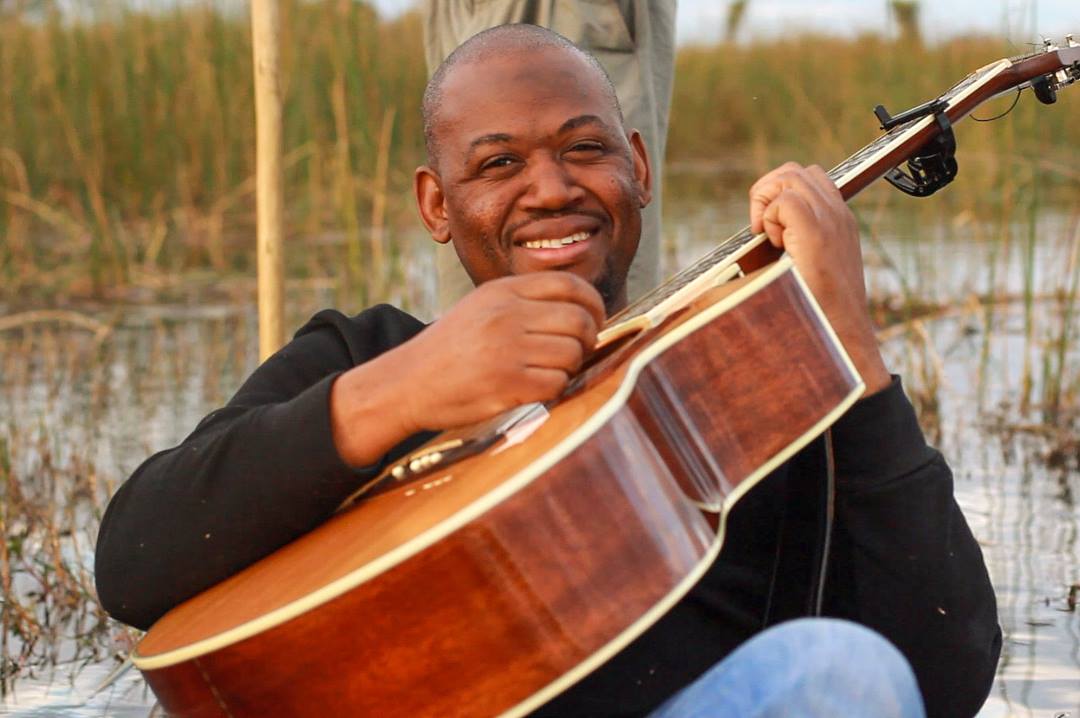
“I believe music is a really powerful tool. It’s the one thing I know that really unites people. It makes it easier for people to be receptive to messages because we all don’t like great talkers, so people talk all the time but people don’t listen… With music it’s really great because people are bound to listen and bound to enjoy the message. So it’s a tool that really should be used for community mobilization and community education. I think we should be doing more and more of that; using the power of the arts to bring people around issues and talk about them. I’ve seen this happen even in my own music…people are more likely to discuss issues that are taboo when the issues are in a song. It can be a beautiful ice-breaker! Artists have this artistic license and they can say stuff that most people don’t usually say and listeners can then talk about it because it is in the context of a song. They don’t realize they are talking about issues, they think they are just discussing a song. So I think music is a really powerful vehicle that we should be using more than we are actually doing right now.” ~Tomeletso Sereetsi | Gaborone, Botswana
As we moved forward into tracking, Tom linked us with Leroy Nyoni, an amazing sound engineer at Village Sound Studios. Leroy not only helped us with recording the song, but also added a back beat with incredible drumming. Field crew members Jake Taylor and Chris Volosevich, rounded it out with a few of their own bass and electric guitar phases. As the crew finalized tracking, CM Founder Alex Paullin flew to Canada to participate in a Summit Series entitled “Cultivating the Globally Sustainable Self” for a few days, where he discussed environmental sustainability with academics and practitioners from around the world.
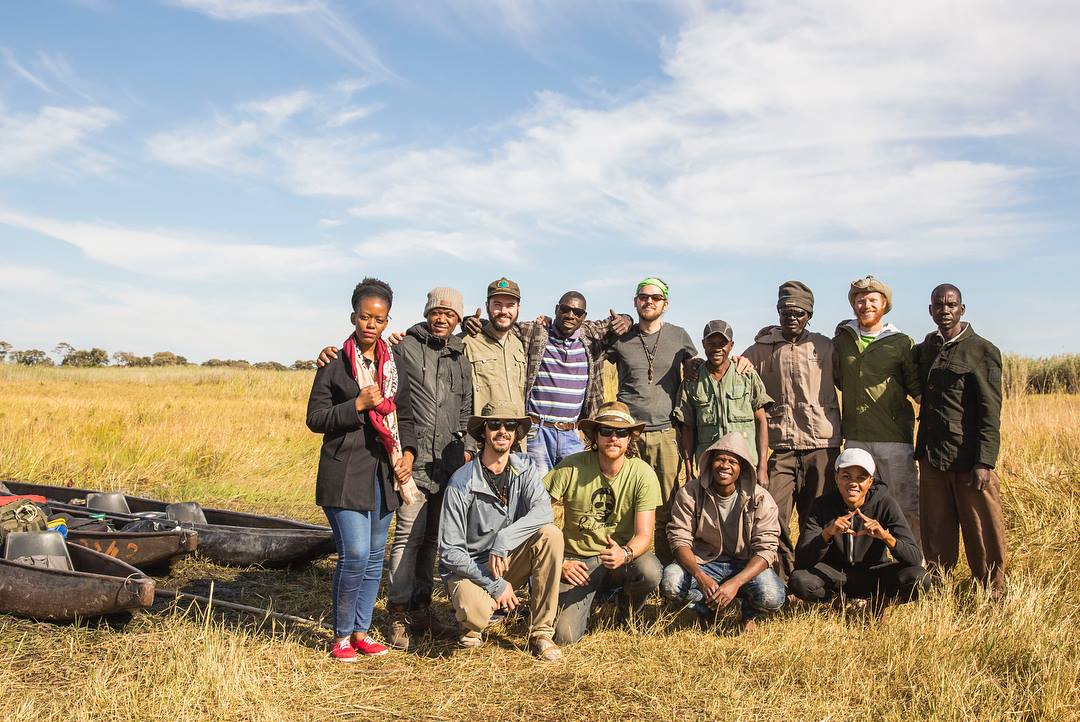
With Alex back in the field, and production progressing, we geared up for the ten hour drive north to Maun, a city just outside the Okavango Delta. Upon arrival we settled into the Old Bridge Backpackers lodging, where we met with Matthew Merritt, CM’s Outreach Manager from the United States. Matthew spent two years in Lesotho with the Peace Corps, and now recruits for the Peace Corps, while volunteering for CM by inspiring stakeholders, sponsors, and partners to join the movement. Integrated into his six week backpacking trip through Southern Africa, Matt hopped aboard CM’s field crew for a few weeks to help with this month’s project. His experience in the field greatly benefited CM, and is one that he will carry back to the states. Connect with us to learn how to become a remote volunteer for CM.
Poling Into the Delta’s Wilderness
Early the following morning, we loaded into safari vehicles, linked with our guides, and headed towards the delta for four days of video shooting, cultural exchange, and nature immersion. After a two hour drive, we arrived at the launch station and transferred into mekoro, which are traditional canoes that we used to travel to each campsite. With production gear, instruments, an off-grid solar studio, volunteers, and artists in tow, we loaded seven mekoro and set off for our journey. As we weaved through the narrow waterways, we encountered herds of elephants, hippos, giraffes, zebras, hornbills and many other bird species. After long days of poling deep into the bush, we set up camp, recorded delta-inspired vocals, and filmed location shoots for the music video. At night we filmed more vocals by the fire, which was intentionally built large to keep the animals away as we slept. We shared delicious food, stories, and various improv jam sessions with the guitar, ukulele, and djembe. Tom and Gaone even had the chance to debut their song in Setswana, a Bantu language closely related to Sesotho, to an audience of local guides who then provided feedback and stimulated further discussions on the future of the delta waterways. It is such a reward when the educational ability of music can be seen first hand.
Field Recap from Matthew Merritt:
“The conversations held around the fire following the song were groundbreaking. It was then that we discovered that while the guides and polers had spent their whole lives on the delta, they were unaware that the water originated in Angola. It wasn’t until they heard the song that they asked questions about where the water came from and what was happening to cause the waters to lower. This was the reason we were here; to bring environmental education to rural communities in need. It was iconic and something I will never forget.”
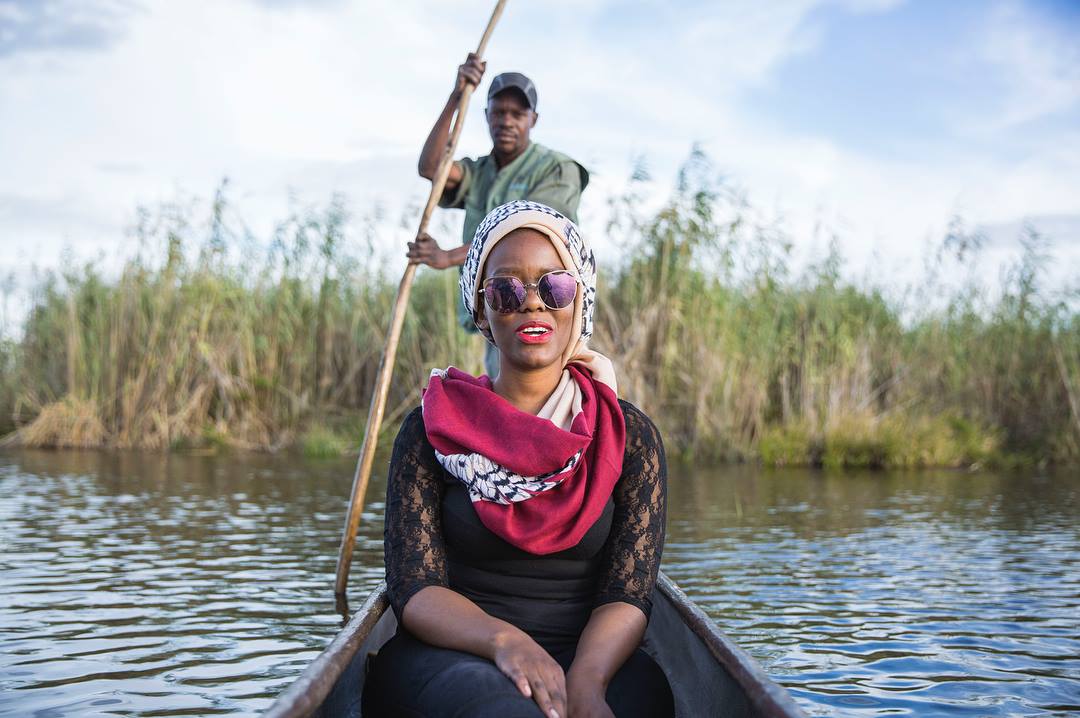
With each rising sun, we set out by foot on guided safaris to explore the area and seek out wildlife. We encountered mixed herds of giraffes, zebras, antelope, ostriches, and elephants. The elephants made for the most memorable experiences as we witnessed a herd of over fifty travelling together, as well as unknowingly trekking into the wrong territory and getting false charged by one from the side. Luckily, everyone walked away safely with a humbling reminder of nature’s power. We followed up with supplementary filming, including shots for Gaone’s location shoot and a few ad-libs from Tom. On the last day we set out for one last shoot to wrap up filming before heading back to Maun.
CM’s Lesotho Chapter Lands a Grant
Earlier this year, our first local chapter Conservation Music Lesotho was built by local volunteers. Led by four women, the chapter landed its first grant this month, which will directly support local screenings of CM content to further educate students and rural citizens around the country. This is a landmark achievement for both the local chapter and the CM movement at large. Each step further proves that our scalable vision for a global network of self-sustaining chapters and implemented partners is viable. We are very proud of our local chapter and excited to see what the future holds!
Spreading Awareness
We landed back at the Old Bridge Backpackers lodging and connected with our good friends Helene Forward and Stiger Sola Molefi. Helene is a multi-talented artist, who also owns the Old Bridge Backpackers. Stiger has been performing in and around Botswana for decades and it’s always an honor to spend time with him. Together, we composed and recorded the song’s finishing touches, as Helene added flute and fiddle and Stiger closed out the track with his four-string guitar. With the month coming to a close, Helene allowed us to perform at the Old Bridge Backpackers, where we were able to share our message and collect some gas money for the road to Zambia. The performance was a beautiful memory to end on as we jammed with Helene and other new friends beneath a fig tree on the Thamalakane River. This month was packed with fulfilling work, intense wilderness expeditions, and countless memories. After we said our goodbyes, we hit the road for Livingstone, Zambia, where we were set to take on leg six of Expedition #K2K. Stay tuned for more stories!
Expedition #K2K is our third iteration of long-term field work, and it is by far the most exciting. To learn more about CM, and to stay connected throughout the mission, please subscribe to our Newsletter below, check out our blog on National Geographic, and follow us on Facebook, Instagram, Twitter, and YouTube. For live updates from the field, be sure to check out our page on National Geographic’s newest digital journalism platform, OpenExplorer. If you would like to contribute to Expedition #K2K, please visit our Patreon page, where you can schedule monthly donations of any amount.
This post was written by Charles Ross for Conservation Music.
About Conservation Music
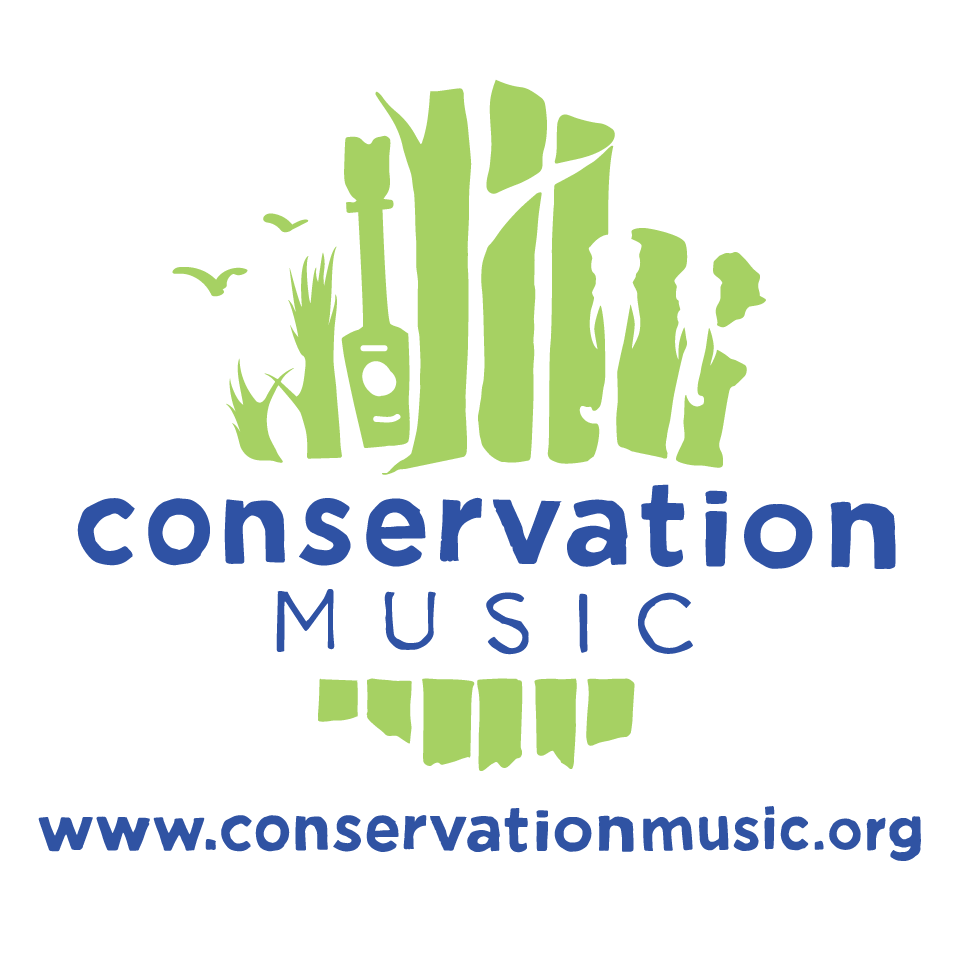 Our Musical Nonprofit For Conservation
Our Musical Nonprofit For Conservation
Facebook | Twitter | Instagram | Linkedin
info@conservationmusic.org
Conservation Music is on a mission to produce and promote musical media that educates listeners and viewers in conservation and sustainability, with an emphasis on rural developing communities, and to serve as a platform for similar efforts. Currently, the organization primarily collaborates with musicians throughout Southern Africa, catalyzing songs in local genres and local languages regarding local conservation issues in countries like Lesotho, Botswana, Angola, and more.
About the Editor
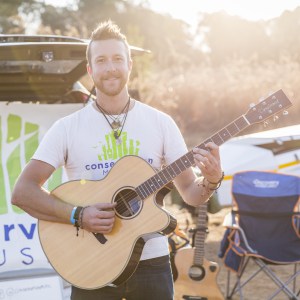 Alex Paullin
Alex Paullin
Facebook | Twitter | Instagram | Linkedin
info@conservationmusic.org
After years of soul-searching and months in the African wilderness with the National Geographic Okavango Wilderness Project, musician and geographer Alex Paullin combined his foremost passions and founded Conservation Music, a non-profit aiming to foster a global culture of sustainability using music as the messenger. Throughout his life he aims to expand the Conservation Music movement globally, in hopes that his lifetime will see and hear songs of conservation being sung throughout the world.
